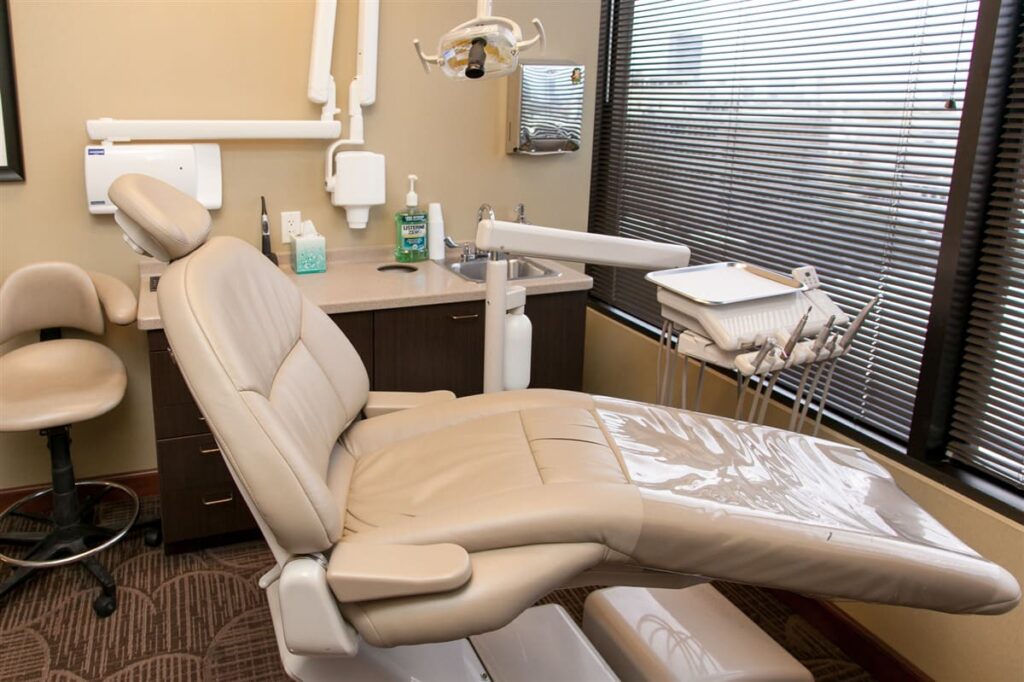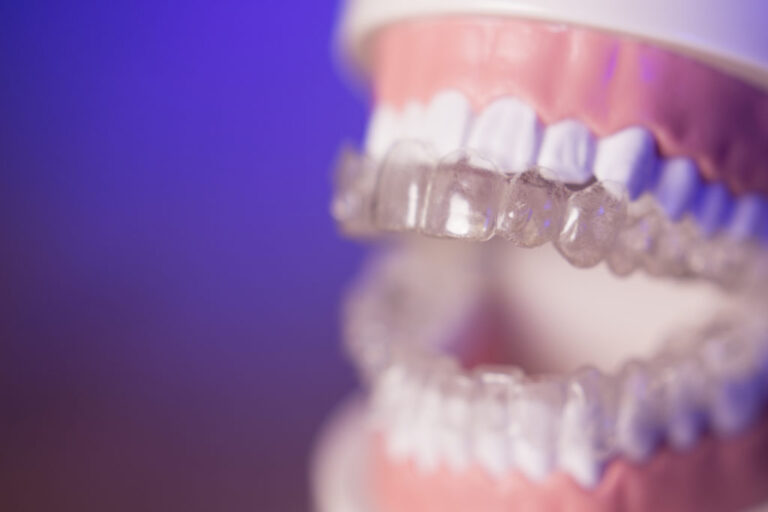A: Typically not. The patient at that point had already had a missing tooth or a tooth that was beyond repair. So, maybe we had to pull it and put an implant in—but either way, they don’t typically affect your speech.
Occasionally, we hear people saying, “I can feel air kind of blowing through,” or maybe a little bit of a whistle. That’s usually fixed in between the initial phase when we put the implant in and us finalizing the restoration. So, you don’t ever hear of that after the final stage.
Did you know over 125 million Americans are missing at least a single tooth? So, if you’ve lost one as well you’re in a wide group of people. Like those missing a tooth, you may be going through some discomfort and speech problems that a missing tooth can cause.
Some of you who have multiple missing teeth may be considering dentures to replace your missing teeth. In fact, there may be a handful of reasons you’re considering dentures You’ve likely lost more than one tooth or have severely misshapen front teeth for example.
Dentures are often sought out simply for the aesthetics, especially with damaged or missing front teeth. Whatever your reason may be—dentures may be an option for patients wanting to improve their smile. However, it is not the best solution for your overall health. In fact, it could be downright detrimental.
You see, dentures offer a band-aid solution that comes with many difficulties in your daily life. Dentures cause problems with eating. Certain foods you’ll find, are not edible with dentures. Foods such as popcorn, corn on the cob, red meat, celery, and other foods can be difficult for dentures to handle. Aside from that, dentures can severely impact your speech.
How Missing Teeth Affect Speech
You may not realize it, but teeth are critical for so many sounds our mouths make when speaking. Even losing just one tooth can impact your speech noticeably. Teeth assist in making numerous phonetic sounds such as:
- Z as in Zebra
- SH as in Shine
- CH as in China
- TH as in Throne
Now, if you thought missing one tooth was difficult, when patients lose several teeth, often adjacent to each other—it’s almost impossible to speak properly. One might think that dentures can fix this but, it’s just not the case. Dentures, while making it look like you have teeth, are horrible for alignment and speaking. They can slip, impede your tongue from making the right phonetic sounds and embarrassingly enough, the dentures can fall out.
The reason is that dentures are not a true exact-fit replacement, so there’s uneven placement, and gaps. Dentures are a last resort when it comes to replacing missing teeth. Also, dentures are not even a permanent replacement and they don’t stimulate the jawbone. This leads to the disintegration of the jaw over time. This not only changes facial structure but changes how you speak and cause dentures not to fit anymore.
That’s right, you spend all that money on dentures and end up having to get new ones in some cases, as soon as three years.
So, all in all, dentures don’t improve your situation that much. However, dental implants do improve your situation immensely and don’t impact your speech. In fact, they actually allow you to speak as you always have and allow you to eat whatever you like.
Why Dental Implants Are Best For Missing Teeth
While dentures are not an exact fit replacement fit for missing teeth, dental implants are very exact. They are a 1:1 exact recreation of your natural teeth, minus any imperfections and malocclusions. So what does that mean in plain English?
It means you get a perfect smile that with proper care, will last a lifetime and preserve your jawbone health. That last part is integral, as the reason that dentures fail over time is that they don’t preserve the jawbone.
As mentioned, without that jawbone being stimulated, it begins to break down and eventually disappears. That causes the familiar, “sunken-in” look in many people’s faces that use dentures and speech issues.
Dentures and dental implants are a bit similar in that dental implants are a permanent form of dentures. However, that is where the similarities end. Dental implants differ greatly in terms of functionality, fit, function, and aesthetics. With dental implants, your tongue remains in a natural position as it always has been. Also since the implants fit precisely into your jawbone and create that perfect 1:1 restoration—there’s no adjustment needed.
Patients who have received dental implants are taken aback by how real they look and feel. But that’s just the beginning. The benefits of dental implants extend far beyond looking and feeling like natural teeth.
Dental Implants Perform Like Natural Teeth
This is by far one of the best benefits of dental implants as they give you full bite pressure. With dentures, your bite pressure is extremely limited. That is why some foods are pretty much off-limits for denture wearers. With implants, most patients don’t see any difference between the bite power of their implants and their natural teeth. They eat like they used to before they lost their teeth and they can brush and floss just the same as well.
Dental Implants Will Last A Lifetime
Dentures fail after a few years or don’t fit the same and dental bridges last maybe 10 years if you’re lucky. Dental implants, on the other hand, if care for properly—last a lifetime. Implants are made from titanium that integrates with the jawbone and is biocompatible. So, the implant becomes part of your body.
Dental Implants Preserve The Jawbone
When you suffer from missing teeth, the longer the jawbone goes without stimulation the more it disintegrates. Eventually, the jawbone will reduce to 75% of its volume—typically after one year with no stimulation. After that, the bone loss continues through the years getting progressively worse.
Not only do dentures not help preserve jawbone dexterity, but they can also accelerate its erosion. Dentures often become loose and rub against the bony gumline where teeth once were. Over time that rubbing wears the jawbone down at an even faster rate.
However, with dental implants, the jawbone is still stimulated just like a natural tooth and the jawbone stays strong. If for no other benefit, dental implants should be your choice to at least preserve jawbone density.
Dental Implants Maintain Teeth Alignment
When you’re missing a tooth, the teeth on either side of the gap the missing tooth makes can shift in towards the gap. This pulls your teeth out of alignment from their original position and greatly affects your bite. It also negatively impacts your ability to chew and alters your physical experience—often drastically. Misaligned bites can also lead to TMJ that can lead to jaw pain and severe headaches that rival migraines in some patients.
Make The Smart Move To Dental Implants
Overall, dental implants are ideal for anyone with missing teeth that wants to retain their appearance and way of life. The process is not a painful one and it can be done in as little as one day for some procedures.
If you’ve been considering your options for missing teeth—don’t delay any longer. The longer you go with missing teeth, the more damage your jawbone takes. At Comprehensive Dental Group of Houston, we’re here to make dental implants easy for you.
Just contact us for your free consultation so you can start smiling again!






